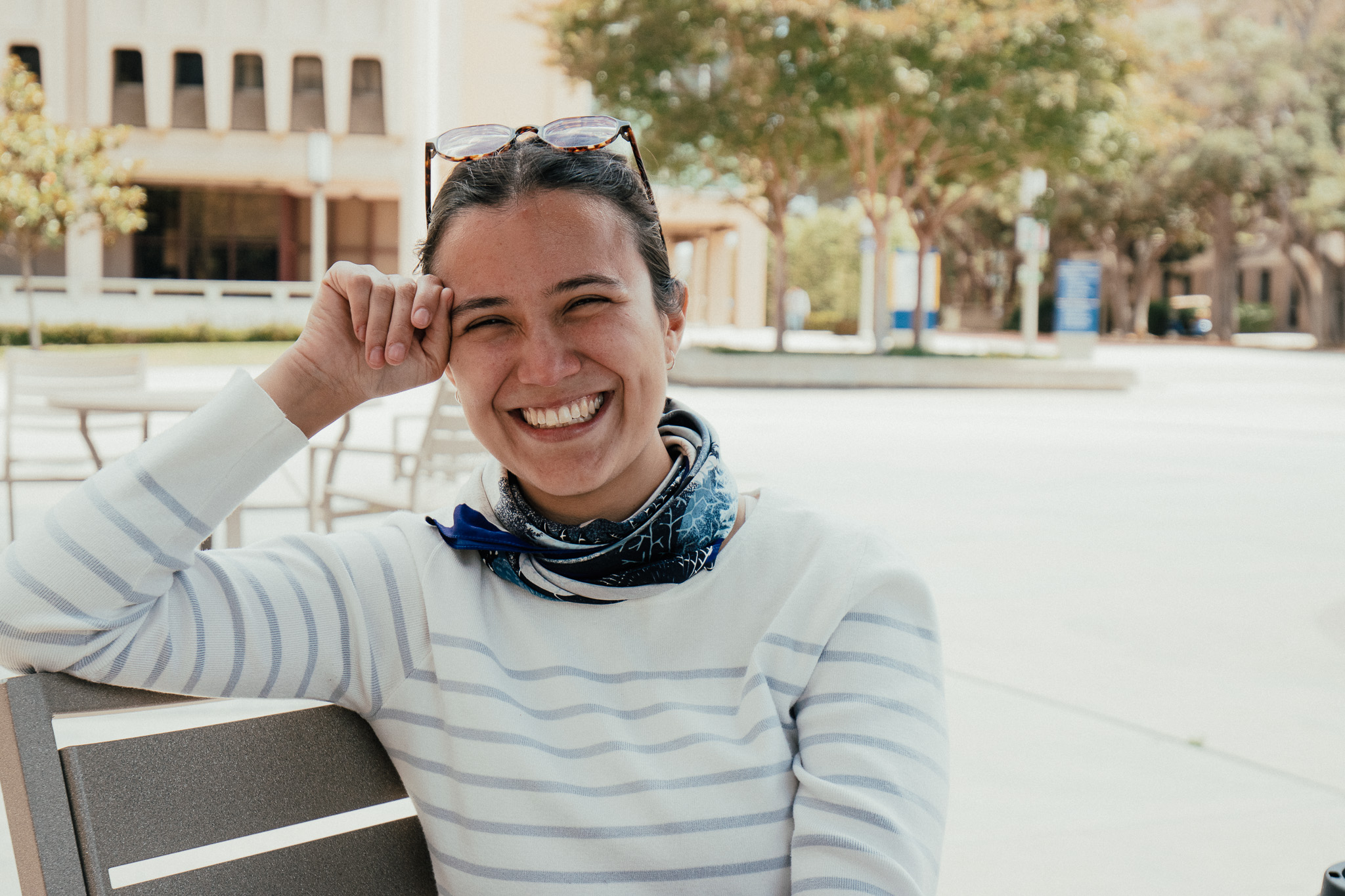The two stories of Miranda Botello

Miranda Botello, a graduate student in the lab of Professor Kathleen Johnson in the UCI Department of Earth System Science, loves to hear others tell their story.
In 2017, Miranda Botello stood on a boat under a summer sun in Veracruz, Mexico and donned heavy scuba gear.
The gear, though, wasn’t the only thing weighing Botello down. Before the dive, Botello, who’s from Mexico City and a new doctoral student in the lab of Professor Kathleen Johnson in the UC Irvine Department of Earth System Science, wasn’t exactly sure what she wanted to do career-wise.
She knew she loved oceanography thanks to a family friend and oceanographer, Enrique Isla, whose passion for ocean sciences ignited a drive in Botello to study the natural world.
“I thought ‘That’s it! That’s what I want to do!’” said Botello, remembering the impact of Isla’s passion.
But, standing on that boat, Botello wans’t totally sure. A childhood illness saw medical bills pile high for Botello’s parents, and even though Botello’s parent were just glad she was doing better, she always felt she had to pay them back.
But then the ocean had something to say.
Botello dropped into the water, and as the water enveloped her and eased the burden of the diving gear, fishes of all different types and colors swirled around her.
It was, she explained, something about the infinite expanse of the ocean that helped her feel that anything was possible – that she could follow the path she wanted.
“I felt like there was no one there to judge me,” said Botello. “It made me feel like I could be myself and have the future I wanted even if it didn't look like what society expected from me.”
The way forward became clear, and in a gap year she took after graduating from the Autonomous University of Baja California, Botello connected with Professor Eric Salzman at UCI. “He told me about this wonderful woman at UCI who works in caves,” said Botello.
That wonderful woman was Johnson, who studies paleoclimate by visiting caves in places like Mexico and southeast Asia. Those caves record chemical signatures that reveal what Earth’s climate was like deep in the past.
Botello applied for graduate school at UCI to work with Johnson. Johnson answered Miranda's email and told her about a new Ph.D. student opening in her lab, and Botello gasped so loudly that her dad stopped the car they were in on a busy street.
“‘What happened?’” Botello’s dad asked.
Botello was in tears.“Now, here I am, studying how tropical forests have changed in southeast Asia since over the last 20,000 years,” said Botello.
It’s a story the ocean helped write. Another story is one Botello wrote themselves.
When she was 15 years old, Botello started writing poetry, and as she wrote emotions started surfacing she did not know were there.
What she discovered was herself; what she discovered is that she’s queer.
“I think that I always knew there was something different in the way I saw everyone and especially the way I saw girls, but I never realized what it was until I started writing,” said Botello, whose younger sisters, inspired by her, started creative writing projects of their own.
But Botello’s newfound identity led to some difficulties. “‘Ew, don´t say that,” some of Botello’s classmates would say. “I remember how they pointed at me and called me names,” said Botello, who grew up in a religious culture. “Accepting myself as queer was hard, but once I did it became easy to tell people.”
“I try to be the best version of myself because I don’t know what people are experiencing,” said Botello, who, endeavoring to be a role model for others, published a story dedicated to her girlfriend in a Mexican magazine. “We are not always realizing how hard life is for other people.”
The ocean helped Botello find their way into science, empowering them to write their own stories.
Now, as a queer person in the Earth system sciences, anything feels possible.
